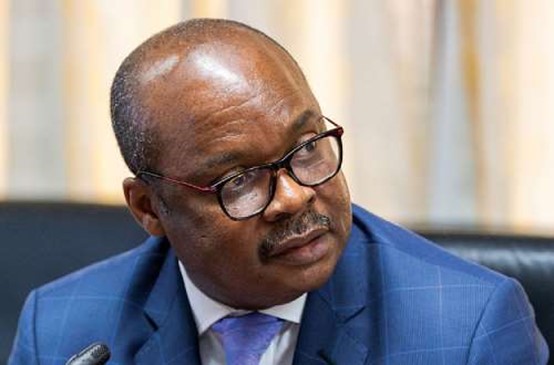The Bank of Ghana (BoG) has assured that it is implementing proactive measures to strengthen its foreign reserves in response to the ongoing depreciation of the cedi against major currencies.
With the festive season approaching, the Central Bank is preparing for an anticipated increase in foreign exchange demand, a strategic initiative designed to stabilize the local currency.
Currently, the cedi is trading at nearly GH¢17 to one U.S. dollar, reflecting a considerable year-to-date depreciation of 24.3 percent. In light of these pressures, the Bank aims to reassure businesses and consumers by working towards greater stability in the cedi through enhanced reserves.
Speaking at the launch of ‘The Concise Law of Banking’, authored by Afua Appiah-Adu, a private legal practitioner, Dr. Ernest Addison, Governor of the Bank of Ghana, emphasised the importance of building reserves to mitigate fluctuations in the cedi’s value.
He pointed out that these measures are essential for ensuring economic stability and maintaining confidence in the financial system. “We are making progress because the developments we are seeing are not different from other jurisdictions.
“So, we need to stay focused and implement the appropriate policies and build buffers to be able to support the progress we have made,” Dr. Addison noted.
Late October 2024, Finance Minister Dr. Mohammed Amin Adam also expressed optimism about the cedi’s resilience amid rising forex demand, particularly with the holiday season on the horizon. He highlighted recent efforts to bolster the nation’s foreign currency reserves and secure international financial support to alleviate pressure on the cedi.
During the recent IMF meetings, Dr. Adam noted the relative stability of the cedi over the period, asserting that the government is determined to continue stabilizing the currency. He acknowledged that increased demand for foreign currency typically arises as the year draws to a close, driven by heightened import and business activities.
To address this demand, Dr. Adam affirmed measures undertaken by the BoG to strengthen the country’s foreign exchange reserves. He stated that the Bank has built up “significant reserves to meet the demand” and anticipates additional inflows from international financial institutions in the coming months.
According to the Bank of Ghana, Gross International Reserves rose by US$1.58 billion to US$7.50 billion at the end of August 2024, providing approximately 3.4 months of import cover.
Net International Reserves also increased by US$1.73 billion, reaching US$4.92 billion at the same time. The growth in Gross International Reserves was primarily attributed to the strong performance of the domestic gold purchase programme.
The country is expected to receive US$360 million from the International Monetary Fund (IMF) following the board’s approval on December 2. Additionally, the World Bank is set to provide US$300 million through its Development Policy Operations (DPO) series.
These funds are anticipated to bolster the nation’s foreign currency reserves and contribute to maintaining exchange rate stability into early next year.










